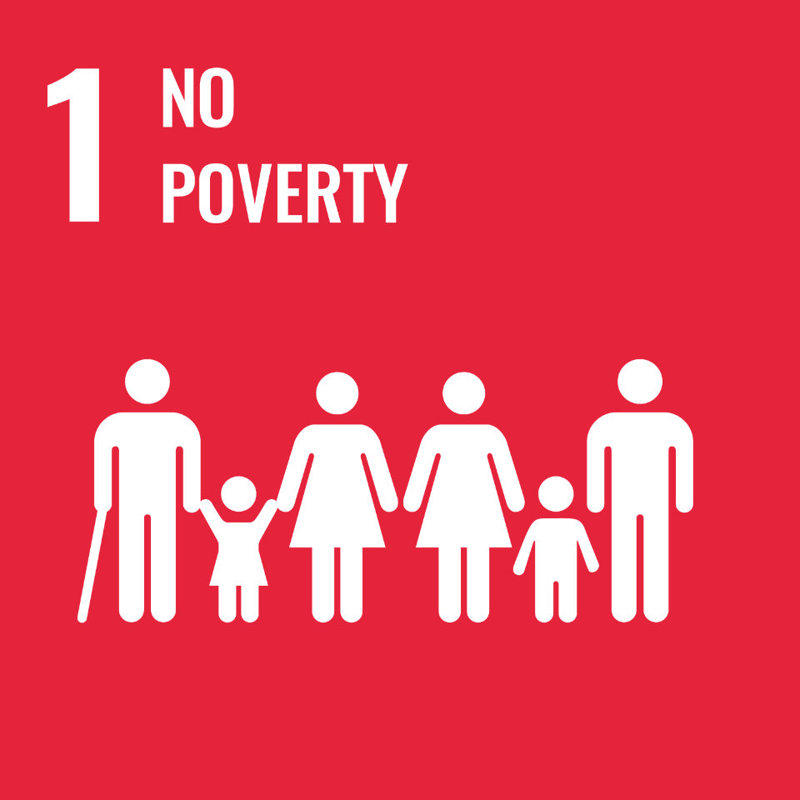Cotonea contributes to achieving the UN’s Sustainable Development Goals (SDG): Number 1 ending poverty

The first Sustainable Development Goal of the UN - no poverty. Cotonea has been contributing to this for years.
In order to finally and fundamentally move the world in the direction of sustainable development, in 2014 the United Nations (UN) agreed on 17 global Sustainable Development Goals. The member countries should implement these by 2030. In order to achieve this, everybody has to contribute.
Simply by cultivating and processing fair cotton, the world’s poverty could be drastically reduced. Cooperative models with fair pay and the participation of farmers, run in the way that Cotonea has already implemented in its organic cotton projects in Uganda and Kyrgyzstan with its local partners, lead to sustainable development in those areas. This not only provides the people with a livelihood but has also created and secured more than ten thousand jobs over the past 15 years.
First Sustainable Development Goal - NO POVERTY
The SDGs first aim is to end poverty. Cotonea contributes to this goal by purchasing raw materials directly at source. ALL production stages – step by step – are paid for and influenced by Cotonea. Cotonea supports their partners locally, by organising initial training and further training for farmers. This leads to an increase of yields and is one of the main contributing factors in reducing poverty. In addition, the Fair Trade premium that Cotonea pays in Uganda and Kyrgyzstan (verified by its Fair for Life certification) provides a direct contribution to promoting self-help in society. This step also indirectly leads to reducing poverty.
The Stiftung Entwicklungszusammenarbeit (SEZ) Baden-Württemberg has been working in Africa for decades and has a partnership with Burundi. Its managing director Philipp Keil knows all too well that the development cooperation with Africa is seen critically, as only the smallest results were achieved there in the fight against hunger and poverty, despite this being the place where the majority of money flows to. For Cotonea’s managing director Roland Stelzer, the main focus point is the fight against the extremely widespread corruption. It is necessary that this be addressed in order to achieve structural change, as this corruption deprives beneficiary countries from receiving money which they desperately need for necessary development. And Philipp Keil is convinced that to ensure that development cooperation is effective we must start with ourselves and our own ways of doing things: in production, in trade and in our role as consumers.
In summary, Cotonea’s contributions to reducing poverty in developing countries are as follows:
- Creating and securing workplaces with adequate salaries
- All production steps under our own control – no anonymous subcontractors
- Initial training and further training to enable the farmers to achieve higher yields
- Payment of a Fair Trade premium, which flows into a cooperative that contributes to the development of society.